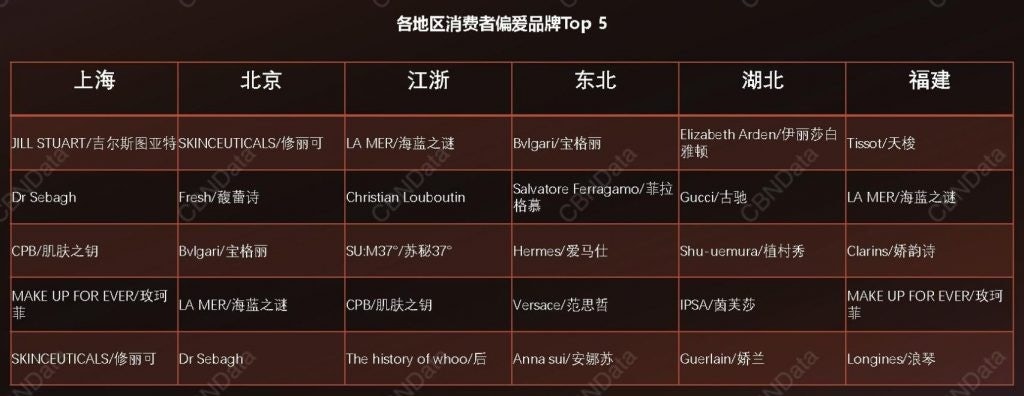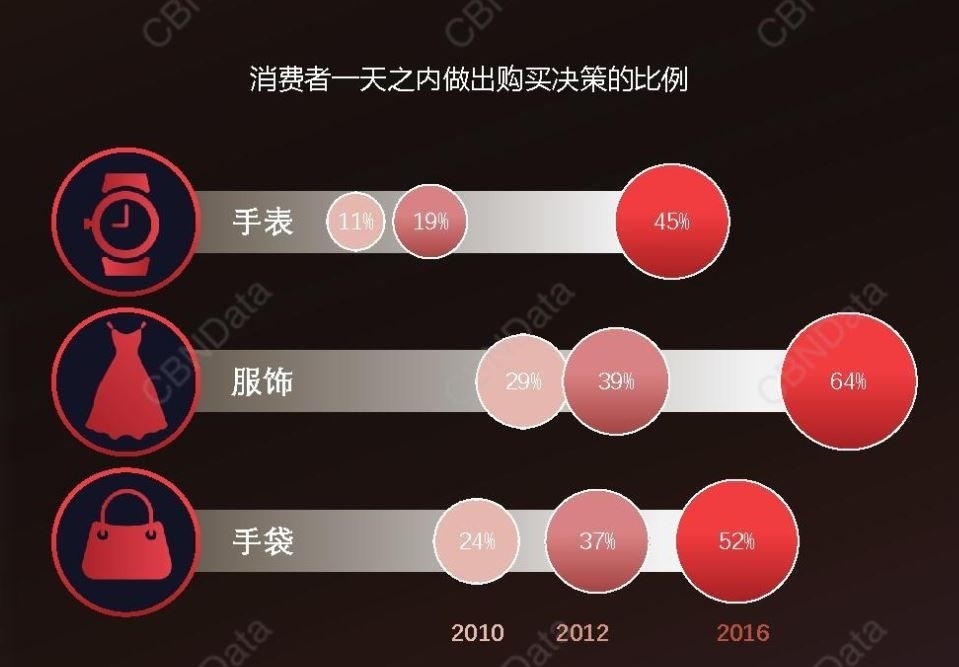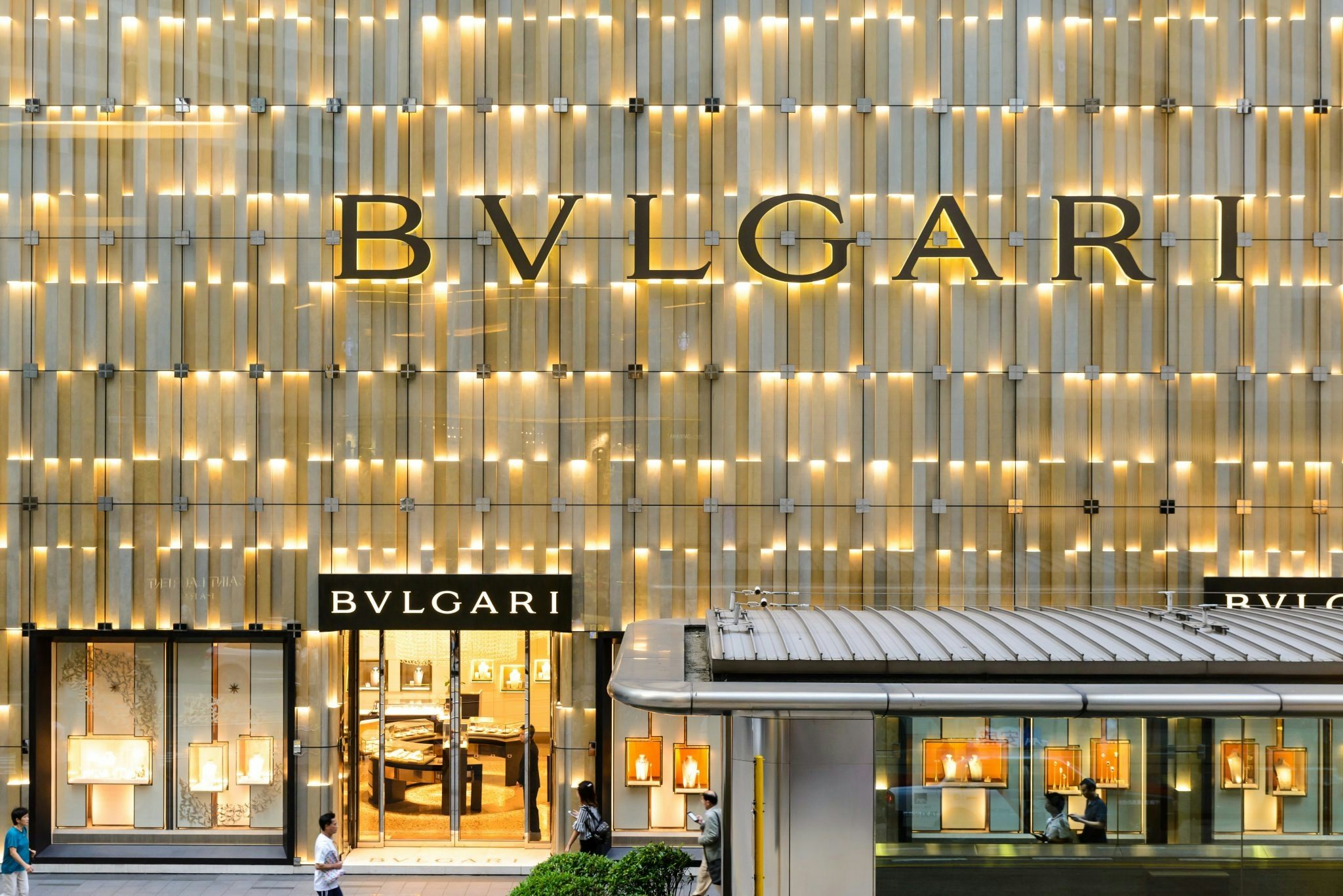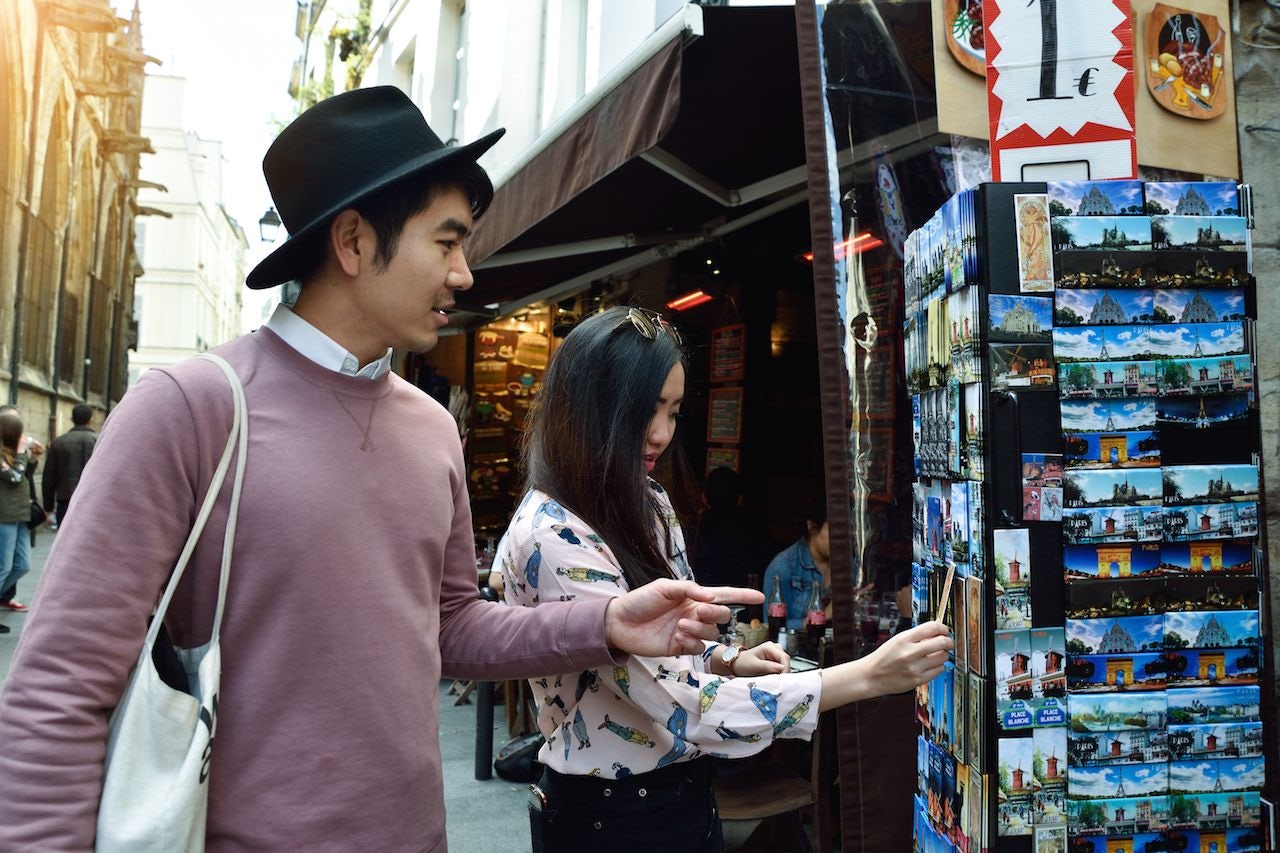Affluent Chinese consumers have demonstrated highly varied luxury brand preferences depending on the cities and regions they live in, according to a new report published jointly by Alibaba's Tmall and CBN Data Center.
The August 21 report, which is titled "2017 New Retail Luxury Consumption Trends," was based on information gathered from 454 million Chinese online shoppers and over one million merchants on Alibaba's Tmall platform from the period between January 2013 to June 2017.
The findings show that Italian jewelry and luxury goods brand Bulgari is the favorite label among people in the Northeast region when buying online, followed by Salvatore Ferragamo, Hermes, Versace and Anna Sui. People's strong preferences for hard luxury goods such as Bulgari and ultra-expensive handbags like those by Hermes is slightly counterintuitive as provinces in Northeast China have had negative economic growth in recent years. The findings, however, remind luxury brands that there are still super-wealthy consumers in this region with untapped potential.

Residents from the country's first-tier metropolitan cities, who hold relatively higher economic power, prefer beauty brands when shopping online. Skinceuticals tops the list for Beijing residents, followed by LVMH-owned Fresh, Bulgari, La Mer and Dr. Sebagh, whereas people from Shanghai choose Jill Stuart, Dr. Sebagh, CPB and Make Up For Ever.
Consumers' responses from areas including Zhejiang and Jiangsu, Hubei, and Fujian reflected a desire for a mix of beauty brands and hard luxury. For instance, La Mer tops the list in Zhejiang and Jiangsu, followed by Christian Louboutin and CPB. Shoppers from Fujian like to purchase Tissot and Longines watches online but also buy La Mer and Clarins.

Aside from regional disparity in consumer preferences that sheds light on the China strategy of luxury brands, the report also reveals a common trend among Chinese online buyers, namely, that they're now much more prone to impulse shopping than they were years ago.
The above chart shows that for the category of luxury watches, 45 percent of Chinese consumers can make the "buy" decision within 24 hours, while only 19 and 11 percent of them could do the same back in 2012 and 2010, respectively. 64 percent of respondents can purchase within one day with regard to the apparel category, and 52 percent of them can decide the same on handbags.
The report also presents findings on the Post-95s generation, an emerging group with regard to purchasing power that refers to Chinese consumers who were born after the year of 1995. Givenchy tops the list of the favorite luxury brands among the Post-95s generation, followed by Chanel, Anna Sui, Dior and Christian Louboutin.
Moreover, they like to purchase beauty products when shopping online regardless of gender. That is mostly because it has been a common practice for male consumers of this age to send cosmetics and skincare products as gifts to their girlfriends and female friends, the report noted. Chanel, Dior, Givenchy and Armani's beauty products are their favorites.
The report further notes two demographics that are still largely unnoticed by most luxury brands: consumers from small Chinese cities and those who are price sensitive. They, along with younger generations, will become the major consumption forces in China in the near future.


